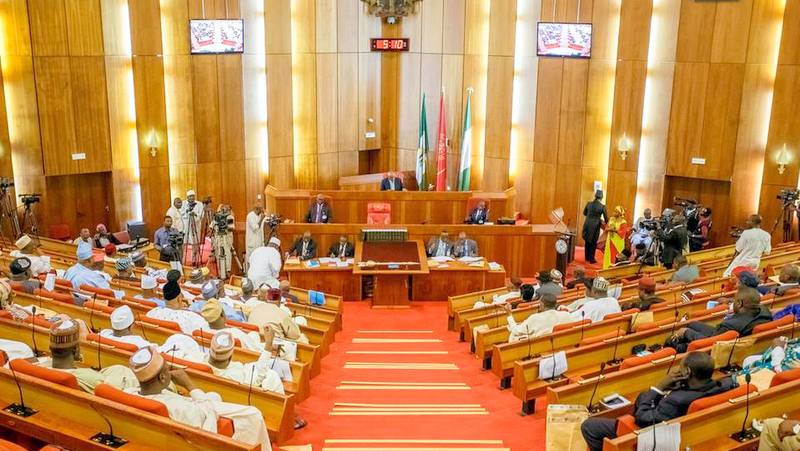
Nigeria now comes close to using electronic voting system in the conduct of elections by the Independent National Electoral Commission, after the country’s Senate amended the Electoral Act on Thursday.
The amendment followed the adoption of the report of the alteration of the existing electoral law, Electoral Act 2010, by of the Senate committee on INEC, and subsequently, the passage of the amendment bill for third reading.
The report on the amendment was presented by Abubakar Kyari, APC-Borno, who stood in for the chairman of the INEC committee, Ali Ndume, APC-Borno, who is on a six-month suspension.
Mr. Kyari, now chairman of the defence committee, is the former chairman of the INEC committee who led most of the work on the amendment process before he was replaced by Mr. Ndume in February.
It took long deliberation before the report was adopted for third reading.
“We have introduced electronic voting through any technology INEC deems fit,” said Mr. Kyari, speaking after the bill scaled through.
The Senate also legalized the use smart card reader and “any technological device” for accreditation.
Card reader was deployed for 2015 general elections, but the Supreme Court, in its rulings on Delta, Rivers and Akwa Ibom State governorship elections, faulted the use.
Although INEC continued to use card readers to accredit voters in rerun elections that followed 2015 general polls as part of its guidelines, this is the first time the technology would be given legal backing.
The Senate also moved to give statutory backing to INEC’s newly unveiled electronic result and transmission system with the aim of eliminating manual collation of results in Nigeria’s electoral process.
Solving Kogi Debacle
Against the background of the crisis that followed last Kogi governorship election in which Audu Abubakar, candidate of the All Progressives Congress, who was leading the poll, died before return was made, the Senate also altered the electoral law to allow INEC suspend exercise, in the event of death of a governorship candidate in the course of the election, for 21 days.
The political party that suffers loss of candidate will then be allowed to conduct a fresh primary to replace the deceased, thereby ending controversy over who should continue on behalf of the party between a running mate or runners-up in the primary election that produced the deceased in the first place.
Then, the bill says that any new candidate from the fresh primary should inherit the votes already garnered by the deceased on behalf of the party.
With the passage of the Electoral Act 2010 Amendment Bill today, the Senate will now transmit the bill to the House of Representatives for concurrence before final transmission to the President for assent.
END

Be the first to comment